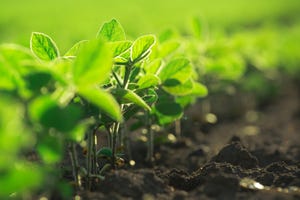G7 Science Academies call for action on AI, antibiotics, ag production
The U.S., along with six other countries, provide guidance to their governments for the upcoming G7 Summit.

The science academies of the G7 countries have issued joint statements and guidance to their respective governments providing guidance for the upcoming discussions to be held at the G7 summit in Puglia, Italy, in June. The U.S. National Academy of Sciences joined academies from Italy, France, Germany, Japan, Canada, and the United Kingdom in issuing the statements.
Drawn up by the academies under the aegis of the Accademia Nazionale dei Lincei in Rome, the statements with relevance to agriculture are:
Artificial intelligence and society. AI is reshaping our world, offering numerous benefits but also raising critical concerns that should be addressed through globally coordinated and inclusive governance, the statement said. Policymakers should take steps to ensure that powerful AI systems are protected against cyber and physical attacks; to protect the trustworthiness of AI systems by promoting legally enforced standards for AI-generated content; and to support equity in AI’s future by widening global access to high-performance computing and establishing an intergovernmental research hub, among other actions.
Health issues. Actions are needed to combat antimicrobial resistance, bolster national health systems, and mitigate climate change to lessen its impacts on health, the statement said. And considering the weaknesses in health systems and institutional responses revealed by the COVID-19 pandemic, initiatives coordinated on a world scale are needed to identify potential novel pathogens and their natural reservoirs in other species.
Security and safety of agricultural production. Actions are needed to invest in monitoring and rehabilitation of microbial biodiversity in soil; adopt a management model that integrates both traditional and emerging knowledge and technology options; and promote trade patterns that favor sustainable agriculture and food systems, among other steps.
The U.S. National Academies of Sciences, Engineering, and Medicine are private, nonprofit institutions that provide independent, objective analysis and advice to the nation to solve complex problems and inform public policy decisions related to science, engineering, and medicine. They operate under an 1863 congressional charter to the National Academy of Sciences, signed by President Lincoln.
About the Author(s)
You May Also Like



